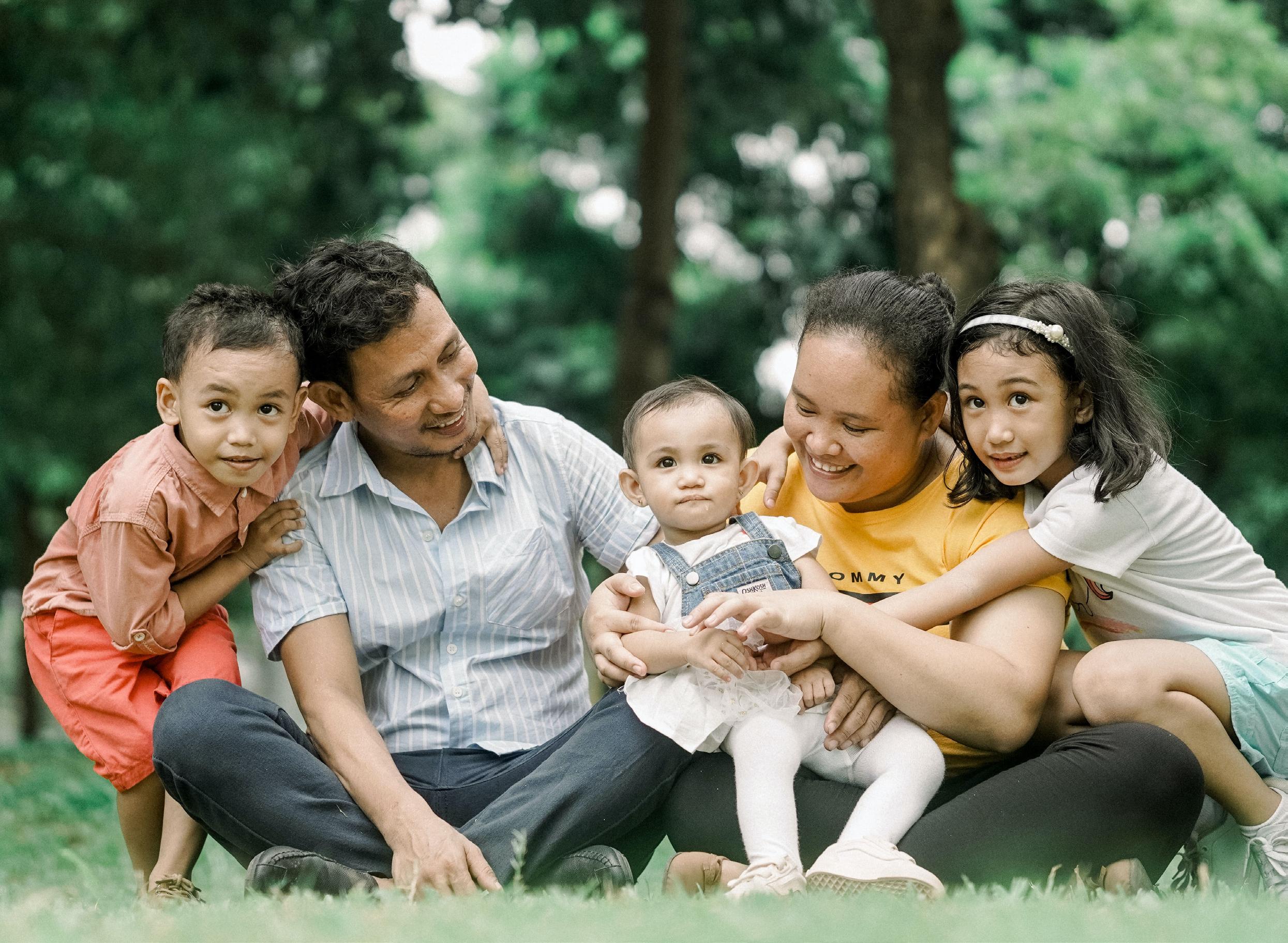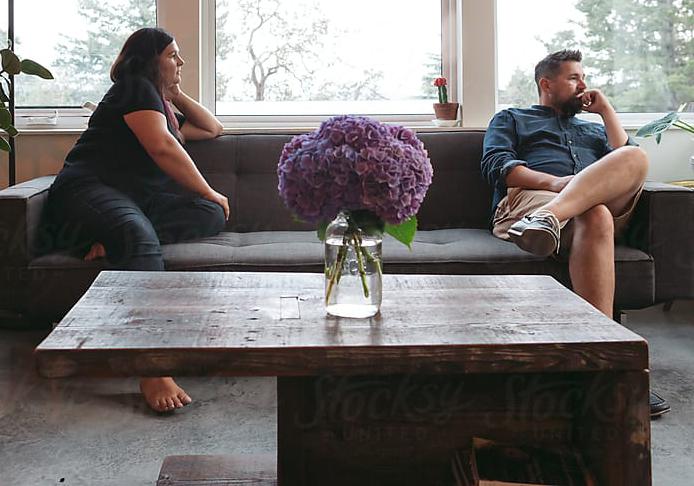Handling Differences
Differences resulting in conflict occur at some point in every one of the relationships that are important to us. Being able to handle conflict and deal with differences is important in establishing healthy relationships.
Differences in values, beliefs, or expectations can often bring on feelings of anger or sadness. We all need to understand and accept that between any two people there will be differences in ideas and expectations and, at times, conflict and strong expression of feelings. Our relationships actually become stronger if we talk about these differences. We need to find out what differences are always going to be part of the relationship and what issues might have a solution if they are discussed more.
For many of us, there are big decisions to make about relationships, work and children.
We have different choices than our parents and grandparents had. Some of these choices may include:
• what kind of romantic relationship do I want?
• what career/course/job do I want?
• do I want to marry?
• do I want to have children?
• if I do have children, do I want to then work full-time, part-time or not at all?

In making these decisions it is important to find ways to balance the needs of our partners, families, friends and jobs with our own individual needs.
The following commonly asked questions and answers offer advice to help you build a successful adult relationship.
| 3
1. What is a fulfilling adult relationship?
A good adult relationship is one in which both people have equal rights, equal opportunities and equal responsibilities. Basically, good relationships are based on each person respecting the other and being able to communicate clearly. Different people have different definitions of what a fulfilling, intimate relationship means for them. Some of the things most of us expect in a relationship include:

• love
• intimacy and sexual expression
• communication
• commitment
• equality and respect
• compatibility
• companionship
• emotional support
• loyalty.
2. How do I find out what my partner’s relationship and life needs are?
Ask your partner to write down the five qualities/needs that are most important for them in a relationship. Have a look at the list and see which of the needs you can do something about, and which you need to negotiate with your partner. Do the same yourself then talk about each other’s relationship needs. It is essential for each partner to try to understand and respect
the other person’s needs as they can be very different from our own. Similarly, we don’t all want the same things out of life. You could each make a list of what is most important in life. Talk to each other about what is on your list. Remember, most people will want different things.
| 4
3. What sorts of issues usually need to be discussed in intimate relationships?
There are a wide range of issues which need to be discussed in an intimate adult relationship. Questions you may need to ask each other and discuss include:

• who is going to do what around the house?
• how is our income going to be shared?
• how much time are we going to spend together and how much time are we going to spend doing things separately?
• what do we expect from each other when it comes to loyalty, trust and sexual faithfulness?
• what do we both like or dislike about our sexual relationship?
• if we have children together and only one of us can work, whose career will take priority –how will this be compensated for over time?
• what role do family and friends play in our lives?
4. Do we make time to talk about how our relationship is going?
Ask yourselves these questions, then check your answers with your partner:
• how well do you think your partner understands you – how you think, how you feel, what’s important to you? Do you tell them this?
• how well can the two of you discuss a difficult issue?
• how often do you argue? If you have many arguments that you don’t resolve, there
may be communication problems. Lots of arguments over trivial issues may be a sign of a power struggle. If you never have any arguments, is it because you are avoiding important issues out of a fear of arguments?
• what interests do you have in common? What do you do together for fun and relaxation? How often do you do something enjoyable as a couple?
| 5
5. How can I encourage my partner to communicate more openly?

To encourage open communication, each person must first accept responsibility for their own feelings. It is important to be honest, as honesty is at the heart of good communication. Be aware of the following:
• The only thing we have total control over is our own thoughts, attitudes and actions.
• Set aside time for both of you to talk, as talking about what is happening and how it affects you is the first step.
• Try to tell your partner exactly what you are feeling and thinking, even if it might upset them.
• State what you want and be prepared to negotiate.
• Don’t forget, change can be painful and scary, so let your partner know that you understand this.
• Listen to your partner, put aside your own thoughts for the time being, and try to understand their intentions, needs and wants.
6. Why should I be the one to make the effort?
For a relationship to be good, both partners must want to make it work and show goodwill. Good relationships don’t just happen; they are created by people willing to work at them. Once you get the hang of it, working at a relationship can be very satisfying. Don’t just wait for the other person to start. You may be pleasantly surprised by how much difference taking the first small step can make.
| 6
7. How can I change my relationship?
Ask yourself how you would like your relationship to be different. If you know, commit yourself to making the changes you need to make. One small change can sometimes make a difference to a lot of big things.

Relationships need to be looked after. Try the following:
• spend time alone together
• develop common interests
• really listen, and try to understand what your partner is saying
• tell your partner when you are unhappy about something
• try to find solutions that are okay for both of you.
8. What makes a relationship ‘good’?
Open communication and doing fun things together is good for relationships. Try the following:
• learn new skills by teaching each other things
• be supportive; do not make judgments when your partner makes mistakes, or does things differently from how you would do them
• do things your own way but don’t be afraid to ask for help when you cannot cope with a situation
• share the load – agree on who will do what in the household and offer to do what you like the most
• allow yourself the right to put up your feet and relax
• make time specifically for yourself – soak in a bath, read, listen to music, talk on the phone to friends
• express your feelings honestly
• show appreciation when your partner does something for you
• listen attentively
• take responsibility for your actions.
| 7
9. How can I improve the relationship I am in?
In long-term relationships, we often assume we know all there is to know about our partners. But people change and it is very easy to lose the sense of connection that we once had. To avoid losing that connection:

• look at what is happening in the relationship
• stay curious (but respectful) about each other
• communicate your needs rather than waiting for your partner to try to guess what is going on with you
• be a good listener.
A good listener…
• keeps comfortable eye contact
• leans towards the other person and makes appropriate gestures to indicate interest and concern
• has an ‘open’ position – fairly relaxed posture with arms and legs uncrossed
• faces the other – does not sit or stand sideways
• sits or stands on the same level to avoid looking up to or down on the speaker
• avoids distracting gestures, such as fidgeting with a pen, glancing at papers, tapping feet or fingers
• realises that physical barriers such as noise or interruptions are likely to make effective communication difficult
• shows genuine attention and interest.
10. What are some of the warning signs of relationship problems?
Noticing early warning signs of relationship breakdown can help a couple resolve conflicts. Some early warning signs are:
• recurring arguments that are never resolved
• feelings of dissatisfaction and unhappiness
• complaints of loss of feeling – one or both partner/s speak of no longer being in love.
• abandonment of joint activities – just living parallel lives
• preoccupation with interests and activities outside the relationship, leading to one partner feeling neglected
• an affair – becoming emotionally and/or sexually involved with a person outside the relationship
• increased fatigue and reduced ability to meet responsibilities at work
• arguments over parenting.
| 8
11. When is it a good time to get professional help?
If your relationship has some of the early warning signs listed above, it can be useful to consider consulting with a professional experienced in responding to stresses and difficulties in relationships.
Relationship courses and seminars can help to improve your relationship and prevent problems from occurring. They provide people with information and skills on a range of relationship issues.
Counsellors can help you to make sense of your experiences in this relationship, develop ways of managing conflict and difference and make decisions about the future direction of your relationship.

Mediators can work with you to identify everybody’s interests and needs and to discuss options for reaching agreements about arrangements for children, and property and finances.
It is good for couples to learn new ways of relating, communicating and resolving conflicts. Services which may be useful include relationship or family counselling, mediation and courses for couples or individuals in communication, conflict resolution, parenting or relationship enhancement.
12. What if the signs of conflict in my relationship are more serious?
Some relationships involve behaviour that is very damaging to the other partner and in some cases may be criminal. Domestic violence is a problem in many households. In the cases that are reported, 95% of the offenders are male. If you suffer any form of domestic violence, seek help immediately.
What sort of things can be called domestic violence?
• Physical assault – kicking, slapping, choking or using weapons against the victim. All threats of physical violence should be taken seriously.
• Sexual assault – a range of abusive behaviours such as rape (with or without threats of other violence), forced compliance in sexual acts, indecent assaults, and forced viewing of pornography.
• Psychological, emotional and verbal abuse – using words and other strategies to insult, threaten, degrade, abuse or denigrate the victim. This can include threats to the victim’s children.
• Social abuse – social isolation imposed upon the victim/survivor, such as stopping them from seeing their family and friends. This may include enforced geographic isolation.
• Economic abuse – controlling and withholding access to family resources such as money and property.
• If you are in trouble seek help as soon as possible. You do not have to put up with domestic violence.
| 9

Call your nearest Relationships Australia office on 1300 364 277 or visit our website - relationshipsnsw.org.au for information, counselling, mediation, courses and resources. Where can a couple get professional advice? | 10
Relationships Australia is a leading provider of relationship support services for individuals, families and communities. We aim to support all people in Australia to achieve positive and respectful relationships. We are a community-based, notfor-profit Australian organisation with no religious affiliations. Our services are for all members of the community, regardless of religious belief, age, gender, sexual orientation, lifestyle choice, cultural background or economic circumstances.
A network of over 80 Relationships Australia offices is spread throughout all Australian states and territories.
www.relationships.org.au 1300 364 277

| 11












